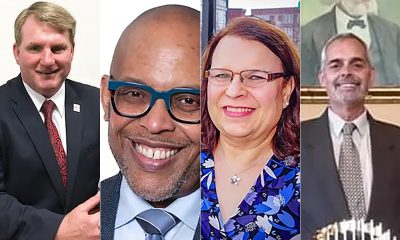Obituary
First United States Gay Ambassador James C. Hormel dies at 88
“Jim Hormel was a barrier-breaking public servant, champion for LGBTQ equality, and cherished friend who will be dearly missed.”
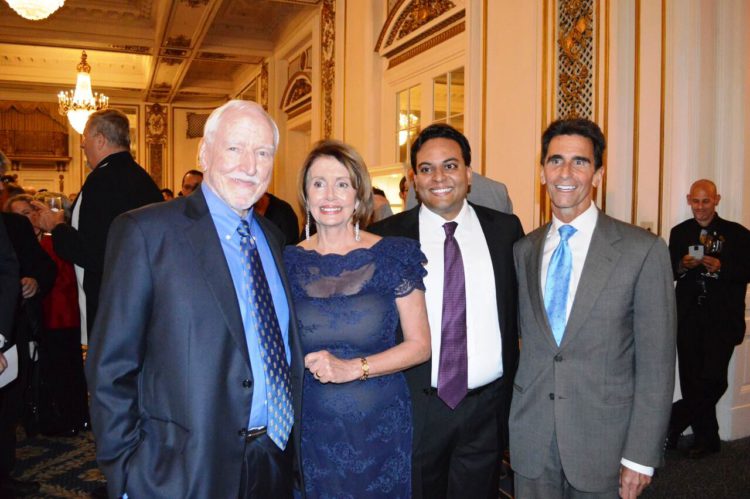
SAN FRANCISCO – The first openly gay diplomat appointed as the United States Ambassador to Luxembourg in 1999 by President Bill Clinton, has died at 88. James C. Hormel, heir to the Hormel meatpacking fortune, was a longtime philanthropist who parlayed his financial interests and contributions as a longtime Democratic Party activist and donor, into actively pursuing LGBTQ+ equality and civil rights.
“We are deeply saddened by the passing of Ambassador Jim Hormel. Jim devoted his life to advancing the rights and dignity of all people, and in his trailblazing service in the diplomatic corps, he represented the United States with honor and brought us closer to living out the meaning of a more perfect union,” former President Bill Clinton and his wife, former U.S. Secretary of State Hillary Clinton said in a joint statement. “We will always be grateful for his courageous and principled example, as well as the kindness and support he gave us over so many years. Our thoughts are with his family and all who loved him.”
Hormel’s work as an openly gay supporter for equality led to his being one of the founders of the Human Rights Campaign Fund along with fellow native Minnesotan Steve Endean. In 1995 the organization was renamed the Human Rights Campaign.
A long time San Franciscan, Hormel served as a member of the board of directors of the San Francisco Chamber of Commerce and the American Foundation for AIDS Research. He also founded and funded the James C. Hormel LGBTQIA Center located at the San Francisco Public Library.
Two notable national Democratic Party political figures and fellow San Franciscans, U.S. Senator Diane Feinstein and U.S. House Speaker Nancy Pelosi reflected on Hormel’s long service.
Sen. Feinstein’s statement read in part, “San Francisco lost a great friend today. A philanthropist, civil rights pioneer and loving spouse and father, James Hormel lived an extraordinary life and will be deeply missed by many, Feinstein said. I had the pleasure of working closely with him on several issues, most notably on the 1984 Democratic National Convention in San Francisco. Tapped to be the ambassador to Luxembourg by President Clinton in 1997, he was the first openly gay person to serve as an ambassador. While his nomination was controversial at the time, his service was distinguished and helped advance LGBTQ rights both at home and abroad.”
House Speaker Pelosi released a statement praising Ambassador Hormel’s commitment to advancing LGBTQ+ Equality rights.
“Jim Hormel was a barrier-breaking public servant, champion for LGBTQ equality, and cherished friend who will be dearly missed in San Francisco, in our nation and around the world. Jim Hormel made history as the first openly gay U.S. ambassador, showing the world how the voices of LGBTQ Americans are integral to foreign policy, and paving the way for a new generation of leaders,” said Pelosi. “With his gentle yet powerful voice and undaunted determination, Jim made it his mission to fight for dignity and equality for all. Paul and I are heartbroken at this tremendous loss, and hope it is a comfort to his husband, Michael, and his children Alison, Anne, Elizabeth, James Jr. and Sarah, that Jim’s extraordinary life continues to serve as a beacon of hope and promise for LGBTQ children across our country and around the world.”
Born at the height of the Great Depression in January of 1933, Hormel, the grandson of Hormel Foods founder George A. Hormel, earned his bachelor of Arts Degree from Swarthmore College in suburban Philadelphia and later a law degree from University of Chicago Law School. He later served as the school’s Dean of Students and Director of Admissions.
Hormel’s Democratic Party activism coupled with his dedicated efforts to advance the cause of LGBTQ equality led to a chance dinner conversation in 1992 with then candidate Bill Clinton’s campaign treasurer, Bob Farmer.
Cynthia Laird, the editor of The Bay Area Reporter, San Francisco’s LGBTQ newspaper noted Hormel’s recounting that conversation which was originally published in B.A.R. in 2016;
Over dinner, Farmer suggested to Mr. Hormel that he seek a presidential appointment as an ambassador.
“I was quite surprised when he brought up the idea,” said Mr. Hormel, noting that over 60% of such positions are held by career employees who have come up through the ranks in the Foreign Service.
The appointment did not happen easily, Mr. Hormel recalled.
In fact, it wasn’t until five years after that dinner that Clinton nominated Mr. Hormel for the job. During that period, recalled Mr. Hormel, he made “dozens of visits and hundreds of phone calls” to keep his name in consideration.
Mr. Hormel said he was persistent because, if appointed, “I would break a ceiling and make it easier for gay people to serve at the highest levels of government.”
Initially, Hormel was considered for an ambassadorship to Fiji by the Clinton White House, but according to published accounts in the Washington Blade, D.C.’s LGBTQ newspaper and the Washington Post in December of 1994, his name was withdrawn from consideration in part due to objections from conservatives in both parties on Capitol Hill and the government of Fiji itself.
The Washington Blade’s Lou Chibbaro reported; “The action on Hormel also comes after members of the moderate and conservative wings of the Democratic Party have said the stunning defeat last month of Democratic members of Congress was due, in part, to Clinton’s support for Gay civil rights in general and Gays in the military in particular.“
Fijian officials had protested in part because same-sex intimate sexual relations were a crime punishable by long prison sentences and Hormel’s status as an openly gay man ran counter to the principles of “Fijian Culture” they claimed.
“Hormel’s nomination as ambassador to Fiji would be “dead in the water,” said one source familiar with the controversy, who spoke on condition of anonymity,” the Blade reported. “The source said Helms made it clear through intermediaries that he would bottle up Hormel’s nomination in committee.
The Blade also reported that; “The only reason Jim Hormel did not get the job was because he is Gay,” said one Gay activist leader, who spoke on condition that he not be identified.”
The Clinton Administration according to the Washington Post then explored another appointment for Hormel that would not require Senate confirmation. One option under consideration, the Post reported, was a position in a delegation to an international conference on social justice issues in Copenhagen. Another possibility, the Post said, was participation by Hormel in the United Nations commission on human rights in Geneva.
President Clinton ultimately named Hormel as a member of the United States delegation to the United Nations Human Rights Commission in 1995, and in 1996 Hormel was named an alternate U.S. representative at the United Nations General Assembly.
The following October of 1997, the president nominated Hormel as his choice to be the U.S. Ambassador to the principality of the Grand Duchy of Luxembourg. While the Senate Foreign Relations Committee approved his nomination with the exceptions of Republican conservative Senators Jesse Helms and John Ashcroft opposed, the battle in the Senate which got progressively uglier as contentious portions of Hormel’s philanthropic and activist work were derided by more conservative Republicans and the powerful political foes of LGBTQ+ equality rights.
Those groups included the Southern Poverty Law Center’s designated extremist anti-LGBTQ hate groups, the Washington D.C. based Family Research Council and the Orange County, California based Traditional Values Coalition Christian organization founded by Rev. Louis P. Sheldon to oppose LGBTQ+ rights.
In a Wikimedia entry on Hormel it notes that FRC and TVC both:
- Labelled Hormel as being pro-pornography, asserting that Hormel would be rejected in the largely Roman Catholic Luxembourg. It was later observed that much of the same material could also be found in the Library of Congress.
- The FRC distributed video tapes of a television interview with Hormel at the 1996 San Francisco Pride parade in which Hormel laughed at a joke about the Sisters of Perpetual Indulgence, a group of men who dress in drag as nuns to mock religious conventions, as they passed by. The Catholic League took this as an indication of approval of what they characterized as an anti-Catholic group. In a meeting with Tim Hutchinson, Hormel declined to repudiate the Sisters. In an interview years later, Hormel objected to the idea that the video clip showed that he approved of the group and that he was anti-Catholic.
- It was revealed that Hormel had contributed $12,000 to fund the production of the It’s Elementary: Talking About Gay Issues in School, a video aimed at teaching tolerance of homosexuality to grade-school students. This especially inflamed Senator Bob Smith of New Hampshire, who was portrayed unflatteringly in the film. Smith contended that he opposed Hormel not because he was gay but because of his “advocacy of the gay lifestyle”.
Ultimately after Republicans were successful in stalling Hormel’s nomination, preventing a vote which was orchestrated by then Senate Majority Leader, Mississippi Republican U.S. Senator Trent Lott, President Clinton in May of 1999 in a recess appointment made Hormel the U.S. Ambassador to Luxembourg.
The Washington Post reported, “Bypassing Senate confirmation, President Clinton moved yesterday to directly install gay San Francisco businessman James C. Hormel as ambassador to Luxembourg.
The president invoked a provision of the Constitution allowing him to make such appointments during a congressional recess. Hormel, who will become the first openly gay U.S. ambassador, can serve in the post through the end of 2000.
The “recess appointment” drew criticism from a spokesman for Senate Majority Leader Trent Lott (R-Miss.) and conservative groups but was praised by gay rights activists.
“The denial of a confirmation vote by the Senate leadership, a vote he would have easily won, was nothing more than anti-gay discrimination,” said Elizabeth Birch of the Human Rights Campaign, the nation’s largest gay and lesbian political group to the Washington Post.
The Post also reported that Clinton’s recess appointment of Hormel was criticized by Lott spokesman John Czwartacki who said it was “a slap in the face,” particularly to Catholics.
Czwartacki cited what he said were Hormel’s links with the Sisters of Perpetual Indulgence — drag queens who dress as nuns.
White House spokesman Barry Toiv said Hormel does not support “any such group. The idea . . . is outrageous and is false.”
The Family Research Council claimed that Hormel’s appointment was strictly to “advance the gay agenda.” on what the anti-LGBTQ+ hate group deemed a “a government-sanctioned platform.”
Hormel went on to serve as ambassador until the inaugural of President George W. Bush on January 20, 2001.
After his service as ambassador Hormel returned to his philanthropic work moving back to the City by the Bay where he was honored in 2010, with a lifetime achievement grand marshal for the San Francisco Pride parade.
Hormel also continued his lifelong advocacy work and as an elder statesmen in the Democratic Party. When then President-elect Joe Biden announced his choice of nominating openly out Pete Buttigieg as U. S. Secretary of Transportation, the Washington Blade’s White House reporter Chris Johnson reported, “Buttigieg, who made history as a gay Democratic candidate in the 2020 primary said at the time his career aspiration was to become an airline pilot and “was a long way from coming out, even to myself,” but gained knowledge from Hormel’s story.”
The Blade also reported; “I learned about some of the limits that exist in this country when it comes to who is allowed to belong, and just as important, I saw how those limits could be challenged,” Buttigieg said. “So, two decades later, I can’t help but think of a 17-year-old who might be watching right now, someone who wonders whether and where they belong in the world, or even in their own family, and I’m thinking about the message today’s announcement is sending to them.”
Hormel, in an email to the Blade the day after Buttigieg praised him, was able to return the favor by offering support.
“I enthusiastically support the nomination of Pete Buttigieg as secretary of transportation and will acknowledge him as the first openly LGBTQ member of the presidential Cabinet,” Hormel said.
“Today we mourn the loss of a true titan in our LGBTQ+ movement — a trailblazer, a mentor and a friend to all those who sought his counsel during his decades of leadership and advocacy. Ambassador James Hormel defined our community’s resilience — representing our nation with honor and distinction in the face of vile hate and discrimination,” Executive Director of Equality California’s Rick Chavez Zbur said in a statement. “In the years since his diplomatic service, Jim has been unyieldingly generous with his time and his resources, working tirelessly to create a world that is healthy, just and fully equal for all LGBTQ+ people.
“It is true that we stand on the shoulders of the giants who came before us. I am forever grateful for the wisdom and guidance that Jim shared with me and Equality California over the past 25 years, and I am confident that generations of LGBTQ+ diplomats, advocates and community leaders will benefit from his life’s work. I know that we will continue to see the immeasurable impact of his contributions on the faces of children who dream of walking the world’s greatest halls of power without worry that who they are or whom they love could ever limit their potential.”
Hormel is survived by his husband Michael and his children Alison, Anne, Elizabeth, James Jr. and Sarah.
Additional reporting from Lou Chibbaro, Chris Johnson, The Bay Area Reporter, and The Washington Post.
Obituary
Joe Lieberman dies at 82
Former senator, vice presidential nominee championed ‘Don’t Ask, Don’t Tell’ repeal
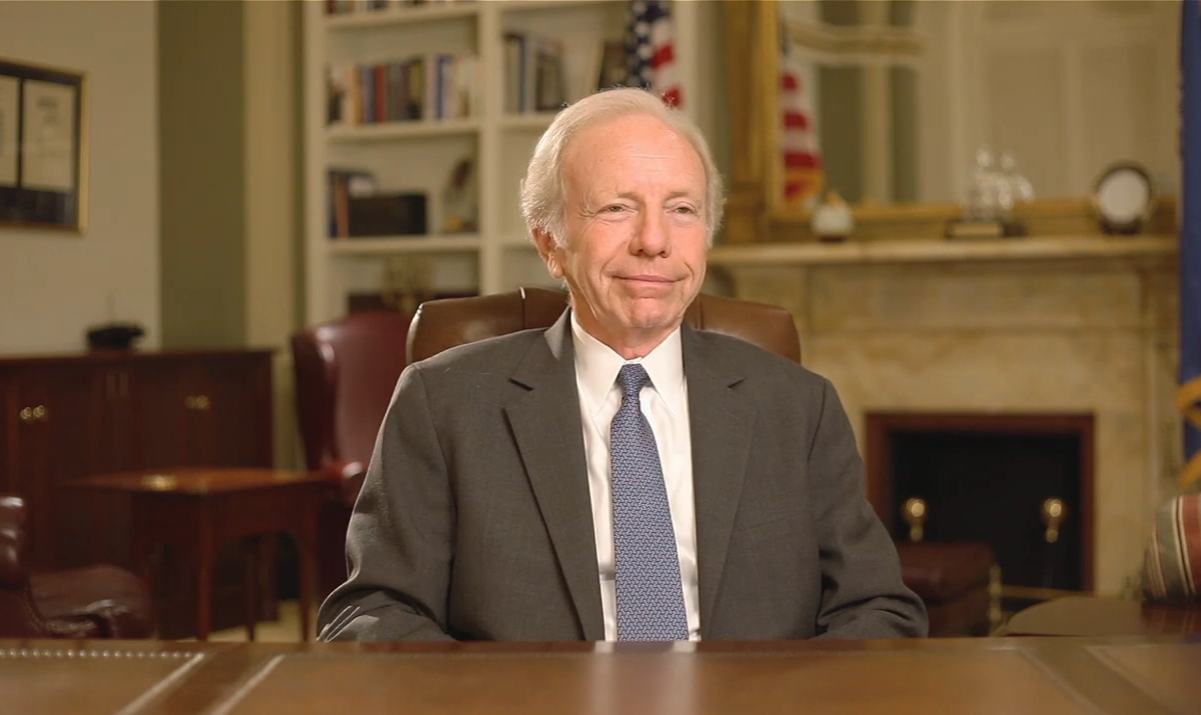
Former U.S. Sen. Joe Lieberman of Connecticut, who had served first as a longtime Democratic senator and then declared himself an independent winning reelection in 2006, died Wednesday at New York-Presbyterian Hospital due to complications from a fall. He was 82 years old.
The announcement of his death was released by Lieberman’s family and noted “his beloved wife, Hadassah, and members of his family were with him as he passed. Senator Lieberman’s love of God, his family and America endured throughout his life of service in the public interest.”
Lieberman, who nearly won the vice presidency on the Democratic ticket with former Vice President Al Gore in the disputed 2000 election and who almost became Republican John McCain’s running mate eight years later, viewed himself as a centrist Democrat, solidly in his party’s mainstream with his support of abortion rights, environmental protection, gay rights and gun control, the Washington Post reported.
The Post added that Lieberman was also unafraid to stray from Democratic orthodoxy, most notably in his consistently hawkish stands on foreign policy.
Lieberman was first elected to the U.S. Senate as a Democrat in 1988. He was also the first person of Jewish background or faith to run on a major party presidential ticket.
In 2009 he supported the Matthew Shepard and James Byrd Jr. Hate Crimes Prevention Act, which was passed as an amendment to the National Defense Authorization Act for Fiscal Year 2010 on Oct. 22, 2009, and then was signed into law on the afternoon of Oct. 28 by then-President Barack Obama.
Lieberman, who served in the Senate for more than two decades, alongside with U.S. Sen. Susan Collins (R-Maine), were the original co-sponsors of the legislation in the successful effort to repeal the Pentagon policy known as “Don’t Ask, Don’t Tell,” which barred open service by gay and lesbian servicemembers in 2011.
Lieberman said the effort to repeal “Don’t Ask, Don’t Tell” in Congress was one of the most satisfying and thrilling experiences he’s had as a senator.
“In our time, I think the front line of the civil rights movement is to protect people in our country from discrimination based on sexual orientation — all the more so when it comes to the United States military, whose mission is to protect our security so we can continue to enjoy the freedom and equal opportunity under law,” Lieberman said.
In an statement to the Washington Blade on Wednesday, Human Rights Campaign Vice President for Government Affairs David Stacy said:
“Senator Lieberman was not simply the lead Senate sponsor of the repeal of ‘Don’t Ask, Don’t Tell’ — he was its champion, working tirelessly to allow lesbian, gay, and bisexual people to serve in the military as their authentic selves. The nation’s first Jewish vice presidential nominee, Lieberman had a historic career and his unwavering support for lesbian, gay and bisexual military servicemembers is a powerful legacy. Our hearts go out to his family and friends as they grieve a tremendous loss.”
In September 2011, during a press conference marking the repeal of the Pentagon policy, questions emerged about how to extend greater benefits to LGBTQ service members.
In addition to the legislation that would repeal “Don’t Ask, Don’t Tell,” reporters asked lawmakers about legislation in the Senate known as the Respect for Marriage Act which was aimed at the repeal of the Defense of Marriage Act, which prohibited same-sex marriage. Collins and Lieberman weren’t co-sponsors of that legislation.
Collins had left the news conference at the start of the question-and-answer period. In response to a question from the Blade, Lieberman offered qualified support for the Respect for Marriage Act.
The Connecticut senator said he had issues with the “full faith and credit” portion of the Respect for Marriage Act enabling federal benefits to flow to married gay couples even if they live in a state that doesn’t recognize same-sex marriage.
“I do support it in part — I think we’ve got to celebrate what we’ve done today — I certainly support it in regard to discrimination in federal law based on sexual orientation,” Lieberman said.
That issue became a mute point after June 26, 2015, when in a landmark decision of the U.S. Supreme Court, Obergefell v. Hodges, justices ruled that the fundamental right to marry is guaranteed to same-sex couples by both the Due Process Clause and the Equal Protection Clause of the 14th Amendment.
Lieberman by that time however, had retired from the U.S. Senate. He announced he would not seek another term on Dec. 12, 2012, and left the Senate the following year. He was succeeded by Democratic Congressman Chris Murphy.
Following his retirement from the Senate, Lieberman moved to Riverdale in the Bronx and registered to vote in New York as a Democrat.
In 2024 Lieberman was leading the search to find a presidential candidate for the third-party group No Labels to run against former President Donald Trump and incumbent President Joe Biden, with whom he had served with in the Senate.
In a post on X (formerly Twitter) former President Barack Obama paid tribute to Lieberman:
“Joe Lieberman and I didn’t always see eye-to-eye, but he had an extraordinary career in public service, including four decades spent fighting for the people of Connecticut. He also worked hard to repeal “Don’t Ask Don’t Tell” and helped us pass the Affordable Care Act. In both cases the politics were difficult, but he stuck to his principles because he knew it was the right thing to do. Michelle and I extend our deepest condolences to Hadassah and the Lieberman family.”
Joe Lieberman and I didn’t always see eye-to-eye, but he had an extraordinary career in public service, including four decades spent fighting for the people of Connecticut. He also worked hard to repeal “Don’t Ask Don’t Tell” and helped us pass the Affordable Care Act. In both…
— Barack Obama (@BarackObama) March 27, 2024
Lieberman’s funeral will be held on Friday at Congregation Agudath Sholom in his hometown of Stamford, Conn. An additional memorial service will be announced at a later date.
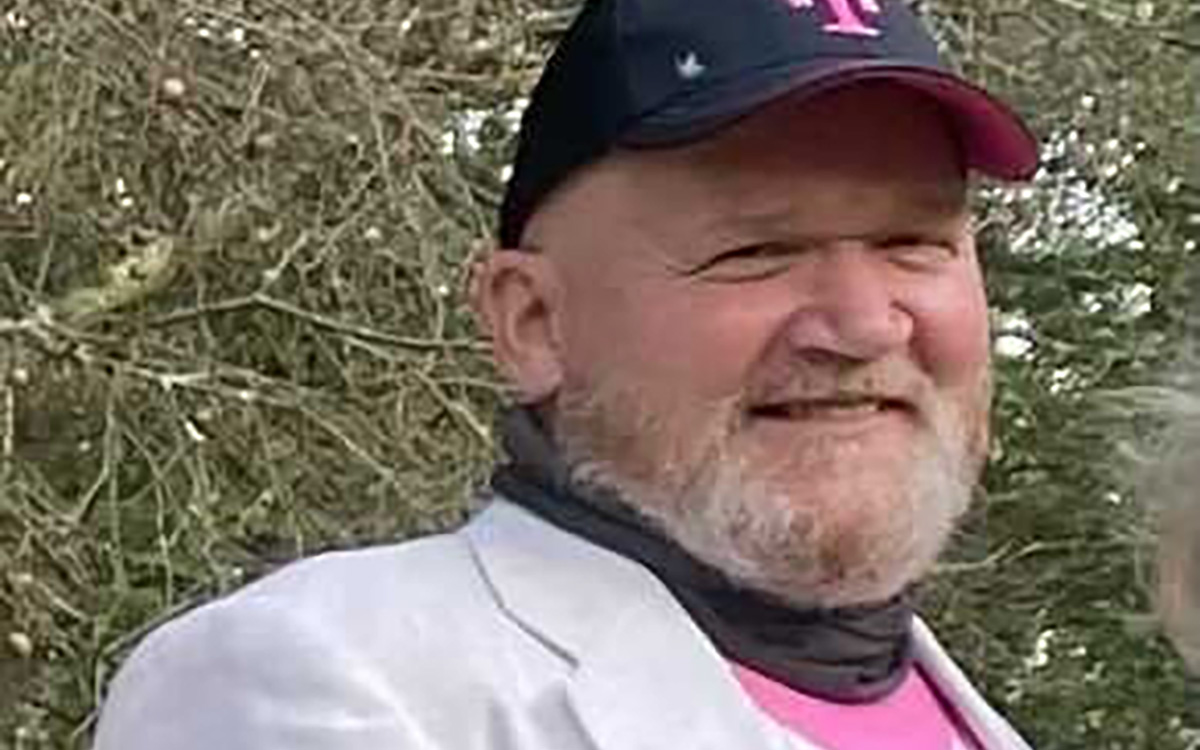
William Joseph “Bill” Troy passed away peacefully on Saturday, Jan. 13, 2024, at Cayuga Medical Center with his family at his bedside, from recent medical issues after living an active and robust life, according to a statement released by family. He was 69.
Troy was born April 15, 1955, in Elmira, N.Y. to William and Shirley Troy. He attended school in Ithaca and left to attend college at the University of Rochester. He worked at the university at various positions to help pay his way through, and he graduated in 1978 with a bachelor’s degree in history. He continued working at the university and living in Rochester until he accepted an internship in the federal offices of Congressman Matt McHugh of the NY 28th District from 1978-1983.
Troy was a life-long collector of various things, starting with coins and comics as a youngster, but in the 1980s he moved on to Art Deco lamps, disco records, antique furnishings, Arts & Crafts pottery, and a multitude of similar objects. He followed his passion of seeking antiques and used furnishings in Washington where he met many like-minded people and formed friendships with collectors and dealers.
Troy lived with his friend and partner Kirk Palmatier in Washington until December 2022 when he moved to Newark, N.Y., Palmatier’s hometown. He also wanted to enjoy his Ithaca family more by living nearer to them.
Troy is survived by five loving sisters and two loving brothers and several nieces and nephews. His death was preceded by that of his parents, William and Shirley Troy. Troy is also survived by his friend and partner Kirk Palmatier of Newark, N.Y., and a number of D.C.-area friends and business associates from over the past years. Arrangements to memorialize Troy will be with his family at a later date. In lieu of flowers, the family asks for donations to your favorite cancer or hospice organization.
Obituary
Longtime LGBTQ advocate ABilly S. Jones-Hennin dies at 81
Credited with advancing bisexual presence in the movement
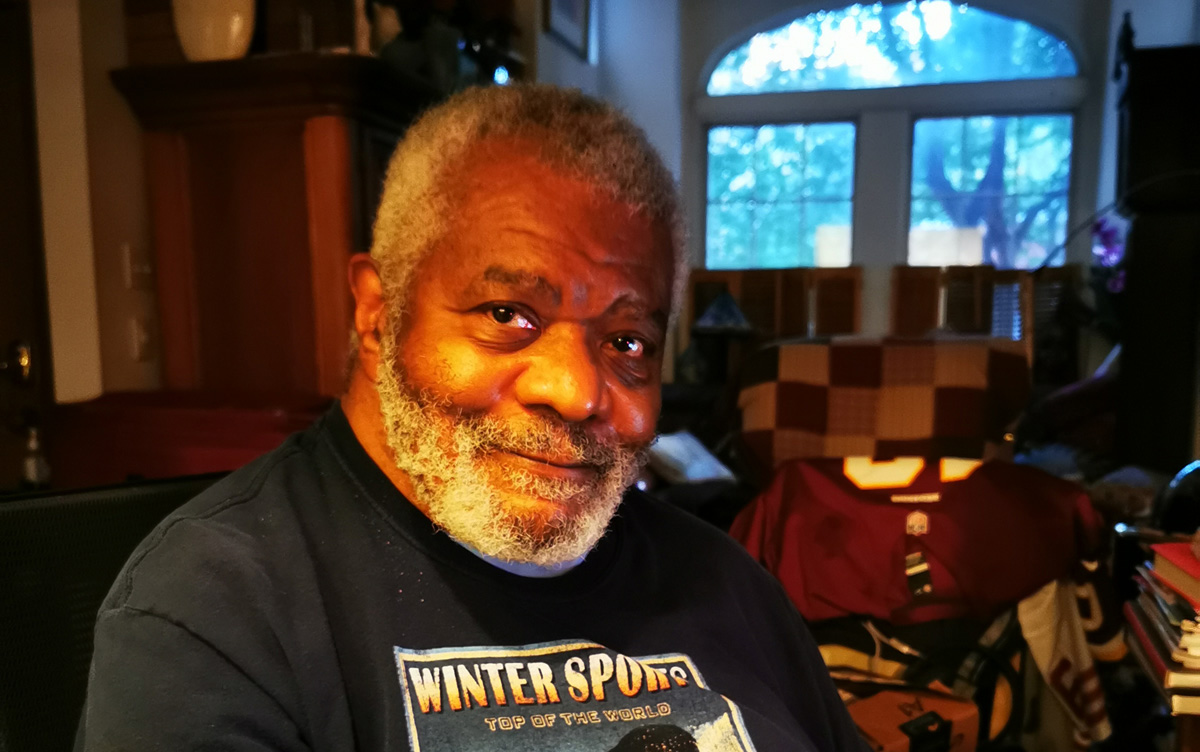
ABilly S. Jones-Hennin, a longtime D.C. LGBTQ rights advocate who co-founded the National Coalition of Black Gays in 1978 and helped organize the first March on Washington for Lesbian and Gay Rights in 1979, died Jan. 19 at his and his husband’s winter home in Chetumal, Mexico.
His partner and husband of 45 years, Christopher Hennin, said the cause of death was complications associated with Parkinson’s Disease and advance stage spinal stenosis. He was 81.
Jones-Hennin, who identified as bisexual, is credited with advancing the presence of the bisexual community within the LGBTQ rights movement while working through several organizations he helped to form to advance of the overall cause of LGBTQ and African-American civil rights.
He was born in St. Johns, Antigua in 1942 and was adopted at the age of 3 by an American civil rights activist couple. According to biographical information on Jones-Hennin released by organizations he worked with, he grew up in South Carolina and Virginia. He served in the U.S. Marines after graduating from high school in Richmond before graduating from Virginia State University in 1967. He later received a master’s degree in social work at Howard University in D.C.
A biographical write-up on Jones-Hennin by the National Black Justice Coalition, an LGBTQ organization, says he was married to a woman for seven years and had three children before he and his wife separated. In a 2022 interview published by the AARP, Jones-Hennin said the separation came after he came out as gay before coming to the self-realization that he was in fact bisexual. He said he remained on good terms with his children and even took them to LGBTQ events.
Christopher Hennin said he and Jones-Hennin met in 1978 in D.C. while Jones-Hennin worked in accounting and management for different consulting firms, including the firm Macro International. At one point in the 1980s Jones-Hennin worked for D.C.’s Whitman-Walker Clinic where he became involved with providing services to people with HIV/AIDS in the early years of the epidemic.
A write-up on Jones-Hennin by D.C.’s Rainbow History Project, which named him a Community Pioneer, its highest honor, said Jones-Hennin managed several federal and state HIV/AIDS research and evaluation projects while working for a national management consulting firm.
Jones-Hennin is credited with breaking ground in the then gay and lesbian movement in 1978 when he co-founded the National Coalition of Black Gays, which became the first national advocacy group for gay and lesbian African Americans. One year later in 1979, he served as logistics coordinator for the first ever National March on Washington for Lesbian and Gay Rights.
During the March on Washington weekend Jones-Hennin helped to organize a National Third World LGBT Conference at Howard University, which led to the creation by students of the Howard University Lambda Student Alliance, the first known LGBT organization at a historically Black college or university in the U.S.
Among his other activities, Jones-Hennin worked as minority affairs director of the National AIDS Network, was a founding member of the Gay Married Men’s Association, and helped co-found the National Association of Black & White Men Together. During the administration of President Jimmy Carter, Jones-Hennin participated in the first delegation of gay people of color to meet with officials working for a U.S. president, according to the National Black Justice Coalition write-up on Jones-Hennin.
Christopher Hennin said he and Jones-Hennin were married in 2014 and began spending winters in Mexico around 1998, in part, because the cold weather had a negative effect on Jones-Hennin’s spinal stenosis condition, which at one point, required that he undergo surgery to treat the condition, which sometimes caused intense pain.
“He was a person totally dedicated to turning adversity into hope,” Christopher Hennin said of his husband. “His passion was definitely social change and improving people’s well-being,” said Hennin, describing Jones-Hennin as a “very impressive 21st century renaissance thinker.”
Hennin said a memorial service and celebration of Jones-Hennin’s life was being planned sometime later this year at D.C.’s Metropolitan Community Church, where Jones-Hennin’s ashes will be placed in a crypt.
Lesbian activist Susan Silber, one of Jones-Hennin’s longtime friends, said she viewed him as the LGBTQ community’s Bayard Rustin in his role as the “amazing organizer” of the first national Lesbian and Gay March on Washington and as lead organizer of the Third World LGBT Conference.
“ABilly lit up the room with his warmth and charisma,” Silber said.
Jones-Hennin is survived by his husband Christopher Hennin; his sister Pat Jones; his children Valerie Jones, Anthony ‘TJ’ Jones, Forrest ‘Peaches’ Taylor, Danielle Silber, and Avi Silber; 10 grandchildren; and 11 great grandchildren.
Family members have invited those who knew Jones-Hennin to share their memories of him online, which they plan to compile and share with his friends and family members:
https://docs.google.com/forms/d/e/1FAIpQLSeBiRDTlZFi4U8s7j26bEH5UChj5fgfpeklL5Km2q34eS3V3A/viewform
-

 Africa2 days ago
Africa2 days agoCongolese lawmaker introduces anti-homosexuality bill
-

 Colorado4 days ago
Colorado4 days agoFive transgender, nonbinary ICE detainees allege mistreatment at Colo. detention center
-

 Politics5 days ago
Politics5 days agoFirst lady warns Trump is ‘dangerous to the LGBTQ community’ at HRC event
-

 World2 days ago
World2 days agoOut in the World: LGBTQ news from Europe and Asia





